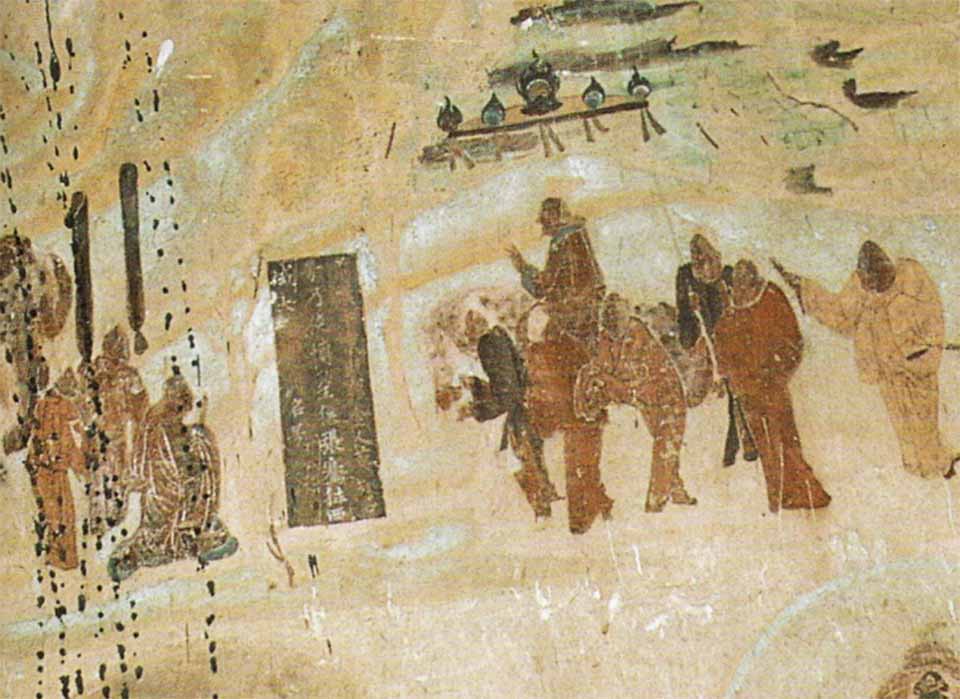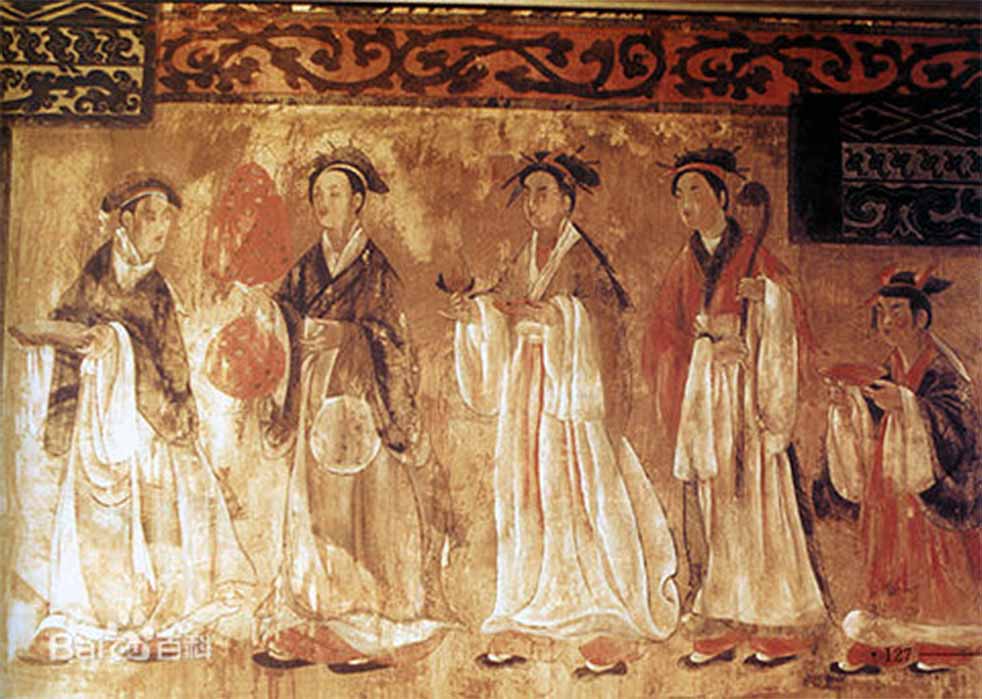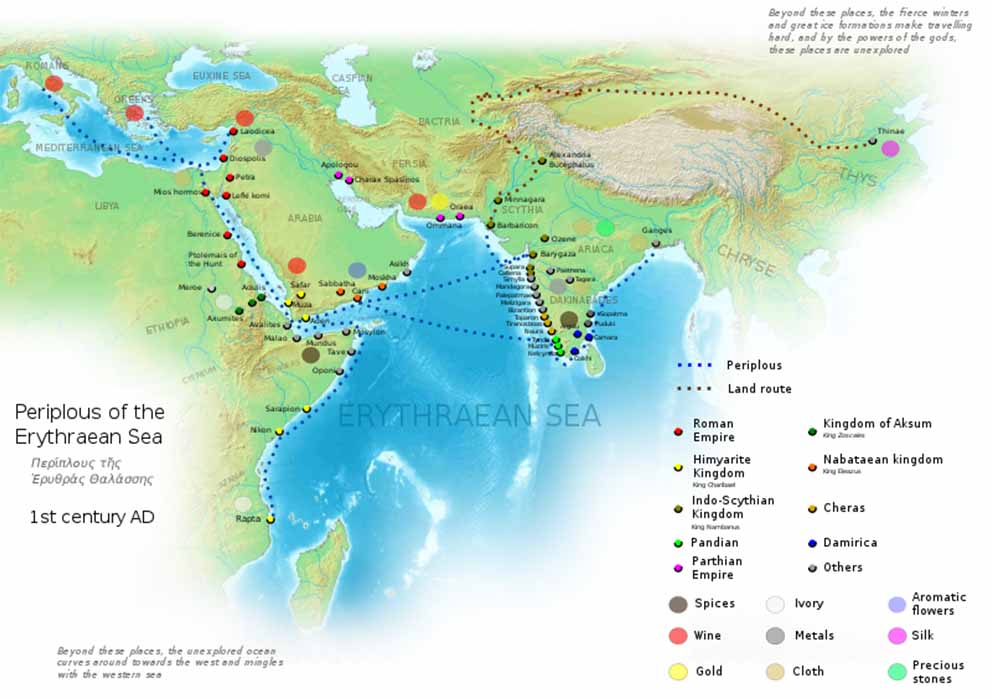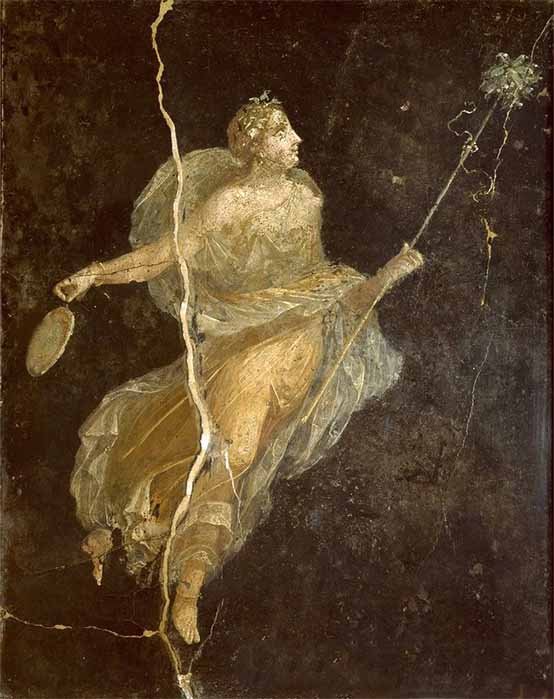
A Tale of Silk and Faraway Lands: Did the Romans Meet the Chinese?
Although located on opposite ends of the globe, ancient Rome and China were remarkably similar in their stature, as both commanded respect from the weaker kingdoms enveloped in their spheres of influence through the twin forces of military might and diplomatic astuteness. Yet outside of their geographical bases, in the mysterious and seemingly endless exterior of the ancient world that commenced on the other side of their frontiers, their impact was often dampened down into an indirect form of influence, disseminated down the winding webs of the perennial Silk Road trading routes, so named after its most famous product.

A mural showing women dressed in traditional Hanfu silk robes, from the Dahuting Tomb of the late Eastern Han Dynasty (25–220 AD), located in Zhengzhou, Henan province, China (Public Domain)
Up until the middle of the first millennium AD, ancient Rome was obsessed with Chinese silk. The superior quality and comfort of silk garments, much better than Roman cloth, imbibed in Roman commentators a fascination for the ‘Seres’, as the Chinese were known, who inhabited a mystical realm somewhere east. Equally, the exquisite glass vessels of the ‘Da-Qin’, as the Romans were called, which made their way to ancient China through immeasurable stretches of land and numerous intermediaries, peaked the curiosity of Chinese scholars who became captivated by the peculiar Ta Ts’in and their home in the farthest western reaches of the known world. From the first century BC onwards, it was silk, trade, and the usual military and political considerations that motivated both kingdoms to find out more about each other, despite the vast distances.

The trade relations between Rome and the East, including China, according to the first-century AD navigation guide Periplus of the Erythraean Sea (George Tsiagalakis/CC BY-SA 4.0)
The Roman Obsession With Silk
Although China was a land of mystery and myth for those in the west, the one certain fact that was known about the Seres was that they were the originators of silk, a soft, comfortable material which in time became the supreme Roman fashion statement. Even their name, the ‘Seres’ was the same name given to the silkworms that produced the luxurious Chinese fabric. The influx of silk started following Emperor Augustus’ establishment of trade with India, who became the middlemen passing silk from the east to the west on the great Silk Road. Silk clothes and togas, because they were lighter and cozier than the coarse cloth of the traditional Roman toga, quickly became popular with Roman aristocrats occupying the top echelons of Roman society, enchanting senators, writers, philosophers, and even Roman emperors such as Nero, Caligula, and Vespasian.

Menade (or maenad) in silk dress, a Roman fresco from the Casa del Naviglio in Pompeii, (first century AD) Naples National Museum. (Public Domain)
Owing to its popularity, silk became an important gift for foreign emissaries, who prized it as highly as the Romans. In 442 AD for example Roman representatives presented Attila the Hun with a fine silk robe as a symbol of respect. The Germans, as well as the Mongolians, found silk equally beguiling, with German chieftain Alaric demanding 4,000 silk tunics while laying siege to Rome in 408 AD.




